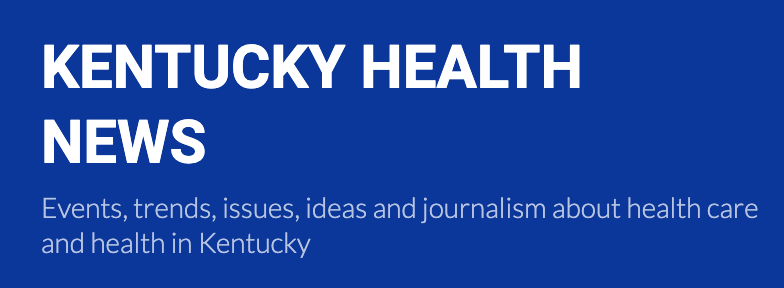First Opioid Abatement Settlement Commission meeting under new leader draws big crowd, largely to support ibogaine study

By Melissa Patrick, Kentucky Health News
Nearly 130 people attended the first Opioid Abatement Advisory Commission meeting under the group’s new executive director, by all indications in support of the former director’s plan to fund research to help legalize a psychedelic drug as a possible treatment for opioid addiction.
“This is very high attendance for our meetings,” Commission member Karen Butcher told new Director Chris Evans.
Evans, a former chief operating officer for the U.S. Drug Enforcement Administration, replaced Bryan Hubbard as executive director under appointment from the state’s new attorney general, Russell Coleman.
Hubbard, appointed by former attorney general Daniel Cameron, was the leading advocate of using $42 million of the nearly $900 million in settlements with opioid companies on clinical trials that could lead to federal approval of the psychedelic ibogaine for treatment of opioid-use disorder.
In Kentucky, half of the settlement money is being distributed among cities and counties, and the other half is controlled by the Opioid Abatement Advisory Commission, which is housed in the attorney general’s office.
Evans opened the Jan. 9 meeting by stressing that the commission would not be discussing specific policies, such as Coleman’s desire to focus on addiction prevention or the funding of specific programs, like ibogaine.
“We will get to fulsome discussions of those, but for this meeting today, this is a business meeting,” he said. “This is one week into this process. . . . so in fairness to everybody and to make sure we are clear, I want to make sure we have the opportunity to be educated about all the issues, to have a full understanding of the workings of the commission, how it operates, what’s necessary and to make sure we can ensure the best process for people.”
He added later, “There will be a time and we will engage in those . . . conversations, but just today is not the day for that.”
But it was. When Evans opened up the floor for public comment, 10 people spoke in support of ibogaine.
Nancy Blackford of Versailles, whose son died from a fentanyl overdose, asked the commission to invest in ibogaine research as a way to help people in addiction get through withdrawal, stating that many people with addictions have such a “fear of withdrawal” that they won’t even try to stop using drugs.
“My appeal to you is to give it a chance,” she said. Later adding, “We’ve got treatment center after treatment center. Let’s set aside some of that money for a new invention. Let Kentucky be the head . . . to do this. I understand that Ohio is looking into this, but why can’t Kentucky be the first to lead?”
Henry Lucas, CEO of the Kentucky Harm Reduction Coalition, said that when it comes to ibogaine, “People are saying, ‘Let’s go. Let’s try something that we’ve never done before so that we can get results that we’ve never had. . . Kentucky can lead the way in something that is profound.”
He also pointed to a new study from Stanford University, published in Nature, that says ibogaine, when combined with magnesium to protect the heart, can safely and effectively reduce post-traumatic stress disorder, anxiety and depression, and improve functioning in veterans with traumatic brain injury.
“No other drug has ever been able to alleviate the functional and neuropsychiatric symptoms of traumatic brain injury,” Dr. Nolan Williams, an associate professor of psychiatry and behavioral sciences and one of the researchers who did the study, said in a news release. “The results are dramatic, and we intend to study this compound further.”
Kentucky Health News asked Hubbard why the findings on ibogaine’s on traumatic brain injuries matters when it comes to opioid-use disorder. He said “opioid dependence creates a neurochemical brain injury,” so the research “validates that ibogaine has significant neuro-regenerative properties, which restore the human brain.”
He added, “This research, while relevant to veterans, TBI, and PTSD, illuminates the fact that there is a restorative physiological effect that ibogaine has, which can perhaps explain why it is such an effective cure for opioid withdrawal syndrome for so many who take it. And that is exactly why clinical research specifically related to its application to opioid dependence is necessary.”
Hubbard maintained his commitment to making ibogaine available to those who seek it.
“I’m very much committed to doing everything I can to help get the word out, and from whatever position I occupy, to help make sure that it can be made available to anyone who would choose to seek it,” he said.
Asked for comment about all of the public comments in support of ibogaine at the meeting, Evans’ office said he did not have anything to add beyond what he said at the meeting.
During the early part of the meeting, Evans introduced state Treasurer Mark Metcalf as the newest member of the commission. He added that Vic Brown, representing law enforcement, would be leaving the commission.
Kentucky Health News is an independent news service of the Institute for Rural Journalism and Community Issues, based in the School of Journalism and Media at the University of Kentucky, with support from the Foundation for a Healthy Kentucky.
Donate to Kentucky Health News here.
http://kyhealthnews.blogspot.com/2024/01/first-opioid-abatement-settlement.html
Recommended Posts

Kamala Harris needs a VP candidate. Could a governor fit the bill?
Fri, July 26, 2024
After cyber-attack on Jefferson County Clerk, Fayette counterpart discusses precautions
Fri, July 26, 2024
An eastern Kentucky animal shelter is swelling this summer
Fri, July 26, 2024